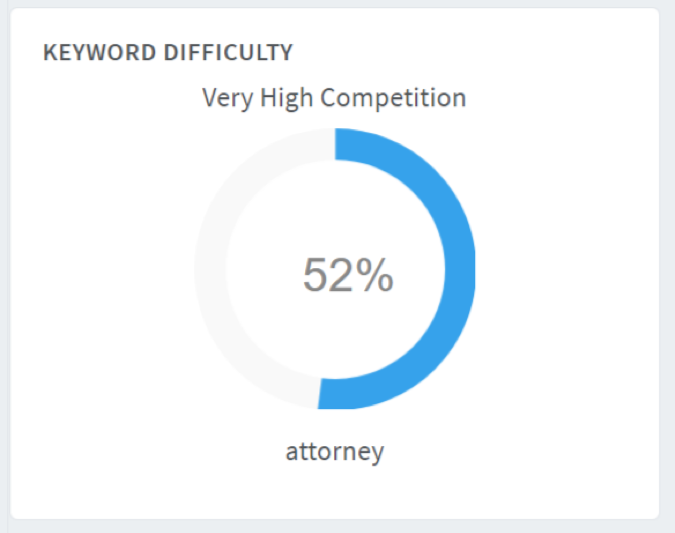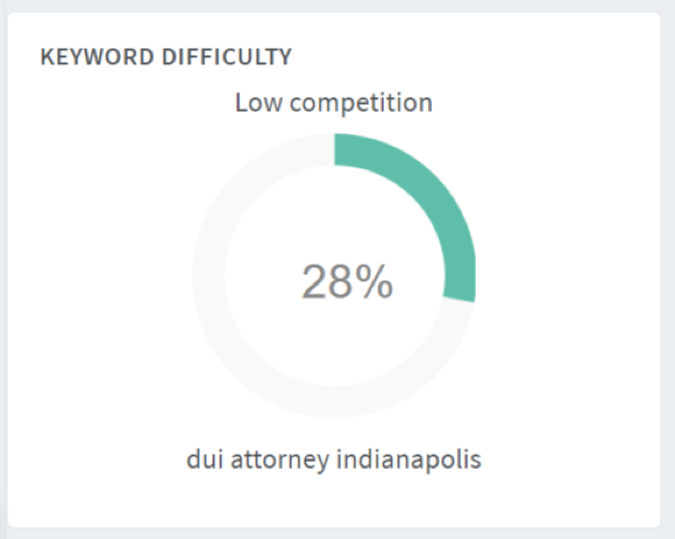![]()
Google alone processes over 40,000 searches every second and over 2 trillion searches per year. And while Google is the biggest name in the business, many other search engines also process large amounts of traffic. Fortunately, by using the right keyword tracking tool, you may be able to secure high rankings, drawing in large amounts of organic traffic.
Quite simply, search engines make the World Wide Web go round. In fact, roughly 93 percent of web activity starts with a search query. Every time a search is conducted, users are presented with pages worth of search results. However, roughly 75 percent of users never make it past the first page.
Your own rank in the search results is called your “Search Engine Rankings” (SER). Having a high SER will result in more traffic coming from the search engine. This is referred to as “organic” traffic. If you’re on the 10th page for a given keyword, you’re probably generating little-to-no traffic. If you’re on the front page for a popular keyword, on the other hand, you might be generating tens of thousands more hits per month!
Having an effective Search Engine Optimization strategy and high Search Engine Rankings could be the difference between failure and success. Let’s take a closer look at how search engines work and why targeting keywords is important for every website. We’ll also go over how you can use a keyword tracking tool to improve your rankings.
How Search Engines Work
Every time a customer types a query into a search engine, they’re generating keywords. In fact, keywords and search queries are synonymous. The search engine then takes those keywords and tries to find the most relevant and high-quality websites for that query.

How is this done? Search engines send out bots that scan through, or “crawl,” over websites to digest the content. “Crawling,” as it is called, allows Google (and other search engines) to both discover websites and gather information on them.
With Google, all of the websites are combined into a central list and are then analyzed. This is where keywords come into play. Google wants to index websites and determine what they are about. Using various algorithms and tools, Google will analyze the sites to determine keywords that might match search queries and the overall quality of the websites containing them.
Once this is done, Google will rank websites for these keywords. Then, when users type keywords into the search engine, Google will present them with the web pages that it has determined to be both the most relevant and of the highest quality.
If you produce high-quality content, build backlinks, and optimize your site, you could end up with a good SER for important keywords, thus drawing in organic traffic.
Why Organic Traffic Is More Valuable
We’ve already pointed out that most clicks and interactions occur on the first page. But there’s an “easy” way to get on the first page: simply pay for an ad. If you’re willing to spend enough money, you can buy adspace on the front page. However, there are some downsides to this.
First, you have to pay for each click, and for competitive, high-value terms, that could cost $10 or more. In fact, some of the most expensive adwords on Google, such as those for “attorney” and “mortgage companies,” cost upwards of $40 dollars per click!
Second, organic results are actually 8.5 times more likely to be clicked on than paid ads. Why should this be the case? It’s quite likely that users trust organic results more. They know that Google has determined the website and content to be authoritative.
Fortunately, by using a keyword tracking tool to discover keywords you can increase your search engine rankings and thus increase your organic traffic. Let’s take a look at how that works.
Websites Can Target Keywords
It’s possible to target keywords. Basically, you find the most searched terms that are relevant to your site and then write high-quality content that explicitly includes those keywords. If you’re an attorney, for example, you could set up a blog on your website and talk about legal issues.

As you write content, you can mention keywords that people are searching for. So if you’re a divorce lawyer in Virginia, you could write blog posts like “How to Start the Divorce Process in Virginia,” and mention things like “the divorce process in Virginia is complicated.”
Ultimately, a search engine’s goal is to provide the best quality content that corresponds to user-generated keywords. So by producing high-quality content that includes these keywords, you’re giving the search engine what it wants. However, there are some specific strategies you can implement to increase your search engine rankings. For example, you could promote your blog to other bloggers and websites, earning backlinks.
Let’s examine another important strategy: strategically targeting keywords.
You Have to Target Keywords Strategically
Many keywords are extremely competitive. Take “defense attorney”, for example. As you can see from our own report below, “attorney” is very competitive.

Why? Quite simply, a lot of SEO experts and lawyers target this keyword. Even if we start targeting longer, more specific keywords, such as “defense attorneys in Indianapolis,” the costs and competition remain relatively high.
However, with a keyword tracking tool, you can discover keywords that are not nearly as competitive for organic searches. Take “criminal defense lawyer Indianapolis.” As our report shows, it’s only a “moderately” competitive keyword. With high quality, SEO-optimized content, you might be able to rank well for this term.
With the right strategies and keyword tools, you can discover even better keywords. Take “DUI attorneys Indianapolis.” It’s an expensive keyword to target with ads, but in terms of organic results, the competition is actually quite low.

By finding less competitive keywords and writing high-quality content, you can greatly increase your Search Engine Rankings. This, in turn, will increase the amount of organic traffic reaching your site. As your site builds authority, you stand a better chance for ranking for the most competitive keywords (i.e. defense attorney).
Conclusion: Strategically Targeting Keywords is Vital
Your search engine rankings for relevant keywords will largely determine how much organic traffic you get. This organic traffic, in turn, is very valuable. Your website’s success or failure could quite literally come down to how well it ranks for relevant keywords.
Fortunately, by using keyword tracking tools like Keyword Revealer, you can discover less competitive but still valuable and relevant keywords to target. As you do so, you’ll increase your page rankings, build momentum, and drive in more traffic, which should bolster your bottom line.






